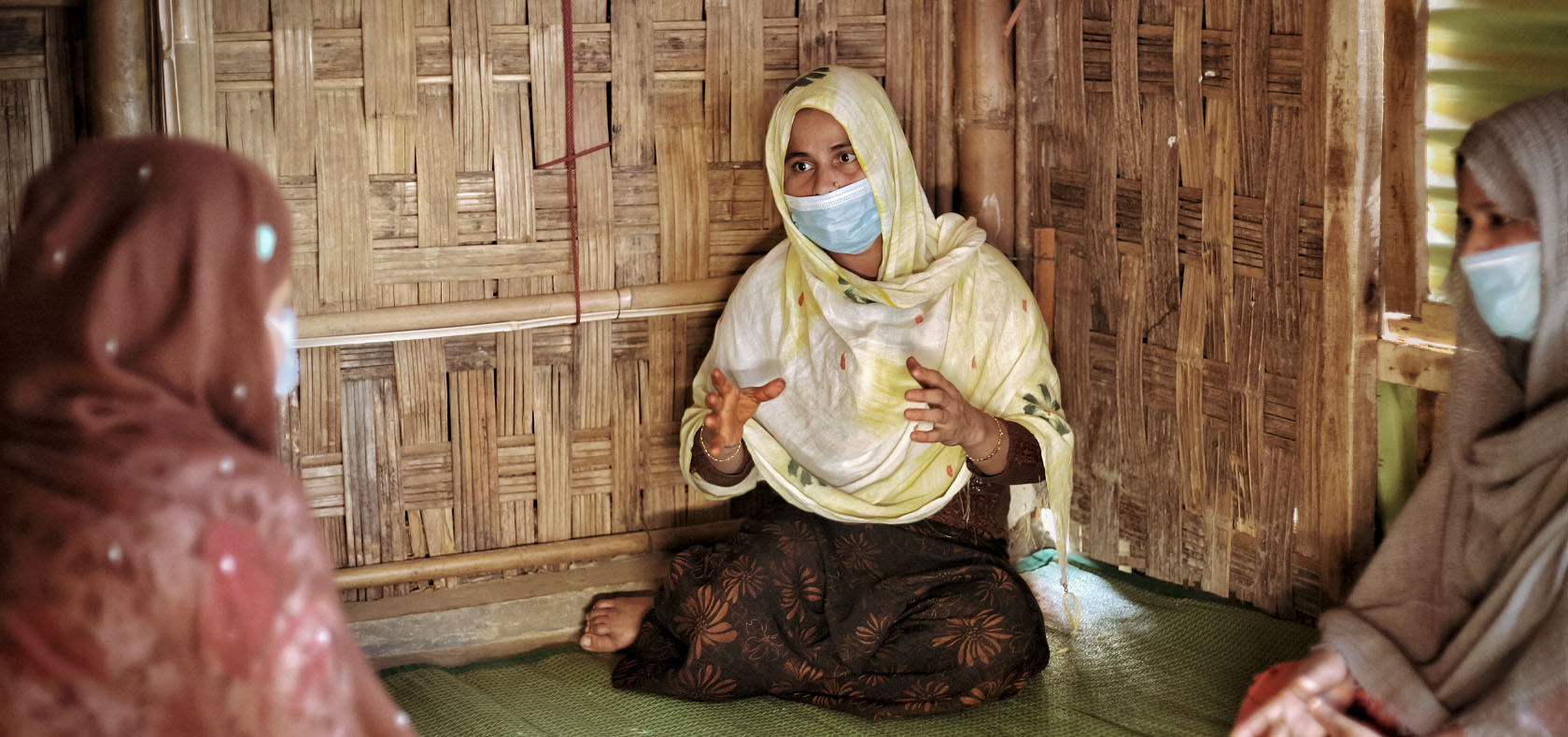Responding to COVID-19 in Cox’s Bazar

UN Women works to ensure that gender equality commitments are at the centre of preparedness and response to the COVID-19 pandemic in Cox’s Bazar. UN Women’s widely circulated Call for Urgent Gender Actions in the COVID-19 response includes guidance on stemming the rise in gender-based violence due to the pandemic; hygiene precautions staff members should take; and information on COVID-19 for community residents. UN Women also has given community health workers and others training on how COVID-19 has affected women and girls.
Prolonged COVID-19 lockdowns and other restrictions have trapped couples in stressful and tense situations inside their homes, resulting in domestic violence, and heightened the risks of sexual exploitation, abuse and trafficking. UN Women has been closely monitoring this situation and has engaged Rohingya women in various activities designed to avoid any violence. We also have regular consultations on this problem with Rohingya women and other community members, camp commanders, Armed Police Battalions, the Inter-sector Communication Group (of humanitarian agencies), and protection personnel.